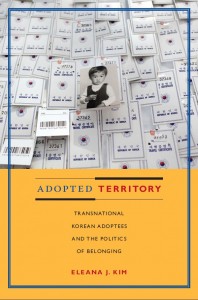As much as I appreciate the sentiment behind these words, they still require me to hold back anger and to clam up in sharing more about me as an adoptee.
First of all, to say I’m lucky because my birth family gave me up or because I finally found a loving home is a bit superficial. I would say that it was good luck that I was adopted by my family because for me no other family would have done. We were lucky to be put into each other’s lives since our circumstances were what they were.
However, my family didn’t really chose me. I didn’t really chose them. It’s not like we’re God’s chosen people to inherit the land – us adoptees – either we didn’t have a choice, didn’t know/feel we had a choice, or feared a different choice. That’s what brought us to our adoptive families and made us stay. If we had one or had known or didn’t fear, then we might have made different ones.
Of course, I’m not taking for granted my adoptive family’s love and our bond. I wouldn’t trade it for the world. But, for those who don’t really understand what it’s like, please, I beg you, don’t tell us we’re lucky we were chosen as if God is promising us paradise.




